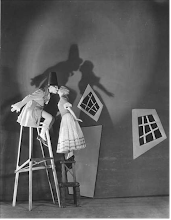
Forgive me the length of this blog. I tried to make it shorter but I found that Rosario Tijeritas had more little labyrinths that what I thought.
Rosario Tijeras, the hero of the novel named after her, the femme fatale that confuses love with death, the cinnamon mestiza with an unconfessable past and entrails of ice, the liar, the murderer, the prostitute, the Mary Magdalene and the Mata Hari of underdevelopment, the ethereal fantasy of our self-pitying narrator, the mysterious Venus of Medellin, partially embodies all these labels and at the same time escapes them to sit on a throne that the eyes of our desperate narrator have made for her. In Jorge Franco’s novel, she is portrayed as a legend more than a woman through the polarized scope of Alejandro, the narrator. She is a legend more than a woman, not only for her mighty character and courage, but because, although her sexuality constantly glows in her presence, she transcends the limits of gender. She drives, kills and commands in a world of violence led by men. Even the rumors express the doubts of her true sexual identity. Gossip raises her from her mere human condition to suggest that she has a son with the devil, and the true reason in Alejandro’s mind for this fallacy is not the impossibilities of conceiving a child with Satan, but the fact that such a fatal woman is too fatal to be a mother.
Through the novel we only see a few moments where Rosario is viewed from a different angle to briefly realize that she is a woman, a woman of the streets, just like all the people that surround her, just like her brother and her “previous master.” Alejandro uses her love to sink into the underworld of Medellin, which at this point has ceased to be an underworld and has bloomed into the streets and daylight of a society where drugs, violence and sex are the meal of every day. The writer does not directly address this, but I believe the book attempts to subtly suggest a commentary on the butchering of morals. Although there is not a concise criticism of this socio-political reality, the story of debauchery of Rosario, Emilio and Alejandro leads to a deep hole of sorrow and loss, which suggests a decadent existence.
Love gets mixed up with death. One is directly related to the other. Rosario kisses her victims before they die, and I think that Rosario is unknowingly in love with Alejandro. Her dichotomy of being cold and brutal, yet liking such romantic music is a proof that she is a full, regular, complicated person. It is her dark past and her guerrilla reality that would not allow her the feelings of love, yet she realizes that Alejandro is different than everyone else. No matter how she feels, she is bound to a certain destiny of loss, and this is too intrinsically entwined in her. At the beginning of the only part that could have led to a change, when she is planning to run away with Alejandro they get arrested and eventually she gets killed, while she is being kissed for a change... “The earlier one gets to know sex, the greater the possibility that things will go badly in life. That’s why I insist that Rosario was born a loser, because she was raped before her time…” This shows the narrator thinks that there was a certain fate that Rosario had to follow.
Just like the writer describes Rosario, as being mysterious and having many different faces, the book shows us different contradictory sides of Rosario. Even though the whole novel is narrated through the subjective voice of a pathetic man suffering from “unrequited” love, there is also a clear suggestion that his view is polarized, and there are brief events that let us see different sides of her. I think that Rosario Tijeras is more of a Rosario Tijeritas and a third world country Venus more than a Greek Aphrodite. Regardless, the novel remains as a statement on the subjectivity of love and as a monument for her.

.jpg)




